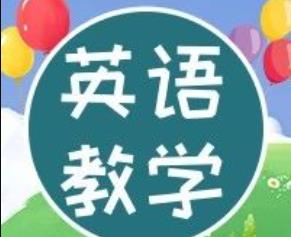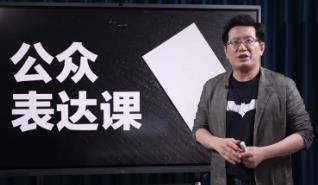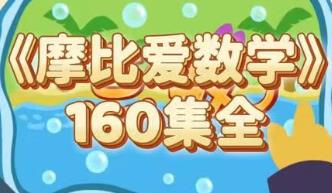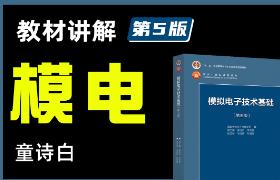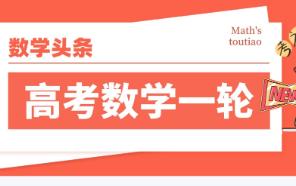- 小学英语 2B Unit1 Where is Kitty?《Story time》-朱樱
- 小学英语 2B Unit1 Where is Kitty? (Fun time)-朱樱
- 小学英语 2B Unitl 1 Where is Kitty? (Rhyme time)-朱樱
- 吴惠-《Unit2 Dinner is ready!(story time)》
- 吴惠-《Unit2 Dinner is ready!(fun time)》
- 吴惠-《Unit2 Dinner is ready!(song time)》
- 译林版 二年级 英语 Unit 3We all like PE! Story time
- 译林版 二年级 英语 Unit 3We all like PE! Fun time
- 译林版 英语 二年级 Unit 3We all like PE! Rhyme time
- 译林版二年级下册英语Unit4 I have big eyes(Story time)
- 译林版二年级下册英语Unit4Ihavebigeyes(Fun time)
- 译林版二年级下册英语Unit4Ihavebigeyes(Song time)
- 小学英语 2B Can you《Story time》-朱樱
- 小学英语 2B Can you《Fun time》-朱樱
- 小学英语 2B Can you《Rhyme time》-朱樱
- 吴惠 二年级下册Unit 6 Let_s go shopping Story time
- 吴惠 二年级下册Unit 6 Let_s go shopping!Fun time
- 吴惠 二年级下册 Unit 6 Let_s go shopping! Song time
- Unit 7 Summer第一课时
- Unit 7 Summer第二课时
- Unit 7 Summer第三课时
- Unit 8 Don_t push please第一课时
- Unit 8 Don_t push please第二课时
- Unit 8 Don_t push please第三课时
- Project 1 We are friends!第一课时
- Project 2 Summer camp第一课时
Unit 1 Where’s Kitty?
一、重点词汇
where’s = where is 在哪里
isn’t = is not 不是
on 在……上面
under在……下面
behind 在……后面
sofa 沙发
miaow (猫叫声)喵
vase 花瓶
basket 篮子
on the sofa 在沙发上
under the table 在桌子下面
behind the vase 在花瓶后面
in the basket 在篮子里
play with a broom 和扫帚玩
二、重要句型
A:Where’s the teddy? 泰迪熊在哪里?
B:It’s in the basket. 它在篮子里。
A:Where’s Kitty? 凯蒂在哪里?
B:Is it under the table? 它在桌子下面吗?
A:No. 没有。
解析:句型“Where’s …?”用来询问某物在哪里,回答时用句型“It’s on/under/behind/in…”。
三、核心语法
1. 会用疑问词where来询问物体的具体位置,并会做出回答。
2. 会用介词on, under, behind和in来描述物体的具体位置。
3. 会诵读歌谣Molly the cat。
Unit 2 Dinner is ready!
一、重点词汇
dinner 晚餐,正餐
broccoli 西兰花
soup 汤;羹
noodles 面条
ready 准备好的
rice 米饭
fish 鱼;鱼肉
meat 肉类
have some fish 吃一些鱼
have some broccoli 吃一些西兰花
for (表示对象,用途等)给,对,供
How nice! 太好了!
二、重要句型
A:What’s for dinner? 晚餐吃什么?
B:Rice, broccoli and fish. 米饭,西兰花和鱼。
解析:句型“What’s for + 三餐?”用来询问三餐吃什么食物,回答时可以直接说出食物名称或者用句型“… have + 食物名称.”
2. I like fish. 我喜欢鱼。
解析:句型“I like +不成数名词/可数名词的复数形式.”可以用来表达本身的爱好。
三、核心语法
1. 学会与家人谈论晚餐的安排以及如何分享食物。
2. 掌握六个食物类词汇:rice, broccoli, fish, soup, meat, noodles。
3. 会用句型“I like …”来表达本身的爱好。
4. 会演唱歌曲Big Henry has a meal。
Unit 3 We all like PE!
一、重点词汇
PE 体育(课)
Chinese 语文(课)
Art 艺术(课)
Maths 数学(课)
English 英语(课)
Music 音乐(课)
today 今天
fun 有趣的
easy 简单的
easy and fun 简单又有趣
二、重要句型
1: We have Maths, Chinese, PE, and English today.
我们今天有数学、语文、体育和英语课。
解析:句型“… have +学科名.”用来表达“……有……课”。
2: I like Maths. It’s fun.
我喜欢数学。它很有趣。
I like Chinese. It’s easy.
我喜欢语文。它很简单。
解析:句型“I like + 学科名. It’s …”用来表达本身喜欢某个或某些学科,并简单描述。
三、核心语法
1. 学会谈论本身喜欢的科目。
2. 学科名首字母需大写:Chinese, English, Maths, Music, Art, PE。
3. 会诵读歌谣English。
Unit 4 I have big eyes.
一、重点词汇
eye 眼睛
mouth 嘴巴
ear 耳朵
nose 鼻子
hair 头发
face 脸;面孔
a big nose 一个大鼻子
small eyes 小眼睛
a round face 一张圆圆的脸
a big mouth 一张大嘴巴
long hair 长头发
look at.. 看……
how about 怎么样
二、重要句型
Look!I have big eyes. 看!我有一双大眼睛。
I have a big nose. 我有一个大鼻子。
I have a big mouth. 我有一张大嘴巴。
How about you? 你呢?
解析:句型“I have…”在本单元意为”我有……”。该句型用来介绍人物的面部特征。注意介绍眼睛和耳朵时,单词通常以其复数形式出现。
三、核心语法
1. 学会描述本身的脸部特征。
2. 掌握六个与脸部有关的词汇:hair,ear,eye,nose,mouth,face。
3. 描述五官时,eye和ear要用它们的复数形式。
4. 会演唱歌曲My face。
Unit 5 Can you?
一、重点词汇
skip 跳绳
skate 滑冰
swim 游泳
of course 当然
like a bird 像一只鸟
can’t = can not 不能;不会
in spring 在春天
ride a bike 骑自行车
come and skip with me 来和我一起跳绳
二、重要句型
1. A:Look! I can hop. Can you?看!我会单脚跳。你会吗?
B:Yes, I can. 是的,我会。
I can dance. I can sing. 我会唱歌。我会跳舞。
解析:“I can… Can you?”用来表达本身会做某事,并反问别人会不会的句子。”Can you?”是个省略疑问句。Can是情态动词,表示能力,意为“能;会”。
2. Of course I can. 我当然会。
解析:of course常用于强调所说的话属实或正确,意为“当然”。
三、核心语法
1. 会用情态动词can来表达本身擅长做的运动。
2. 掌握询问运动能力的一般疑问句“Can you?”和表达不会做某项运动的否定句“I can’t…”。
3. 会诵读歌谣I can…
全站精品课程推荐!
The most popular courses
